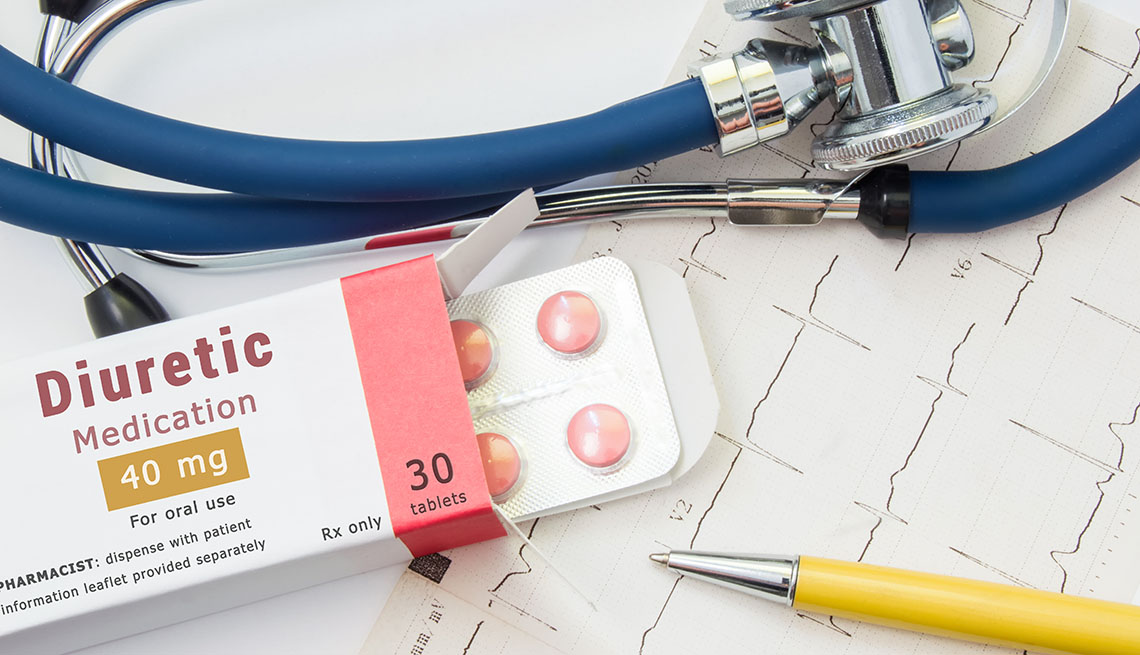
- Select a language for the TTS:
- UK English Female
- UK English Male
- US English Female
- US English Male
- Australian Female
- Australian Male
- Language selected: (auto detect) - EN
Play all audios:
Diuretics are one of the oldest classes of medications. Often known as water pills, they have been in used in modern medicine since the 1950s and 60s, and are widely prescribed today for a
number of conditions. Thiazide diuretics, in particular, are often recommended as the initial treatment for high blood pressure, which affects almost half of American adults. These
medications help relax arteries and reduce pressure. Other classes of diuretics, such as loop and potassium sparing, may be used to treat conditions such as heart or liver failure, tissue
swelling, glaucoma, and some kidney disorders, including kidney stones. If you are taking diuretics, it is important to understand their purpose and potential risks. If not used
appropriately, they may cause electrolyte imbalances, dehydration, and reduced kidney function. To ensure safe and effective use of these medications, we consulted a nephrologist,
geriatrician, cardiologist and a doctor of pharmacy to come up with eight tips to follow when taking water pills. 1. KNOW THAT VARIOUS TYPES OF DIURETICS HAVE DIFFERENT EFFECTS ON
URINATION. “Diuretics sort of mean increasing the urine volume — so making people pee more,” said Zac Cox, a professor in the department of pharmacy practice at Lipscomb University in
Nashville, Tennessee. “It'll sort of range from mild to almost insignificant where you don't really notice any difference, all the way to very prominent changes in urination.”
However, diuretics don’t just change the volume of urine; they change what's in the urine. For example, they can change the way the body absorbs salt, causing it to be removed
through urine instead of being absorbed into the body. Meanwhile, other classes can either lower or raise potassium levels in the body depending on how they affect urination. 2.
SCHEDULE ROUTINE BLOOD TESTS TO DETECT POTENTIAL ELECTROLYTE IMBALANCES. Diuretics can cause electrolyte deficiencies because of their effect on how the body absorbs them. Usually, a
deficiency can be replenished with a supplement such as potassium, one of the most common electrolytes lost. But changing your dosage or the diuretic prescribed may also improve electrolyte
levels. “Some people try to eat more foods that are rich in potassium, bananas or things like that,” said Cox. “Usually, you can't eat enough of that to get your losses, but it can
help.”








